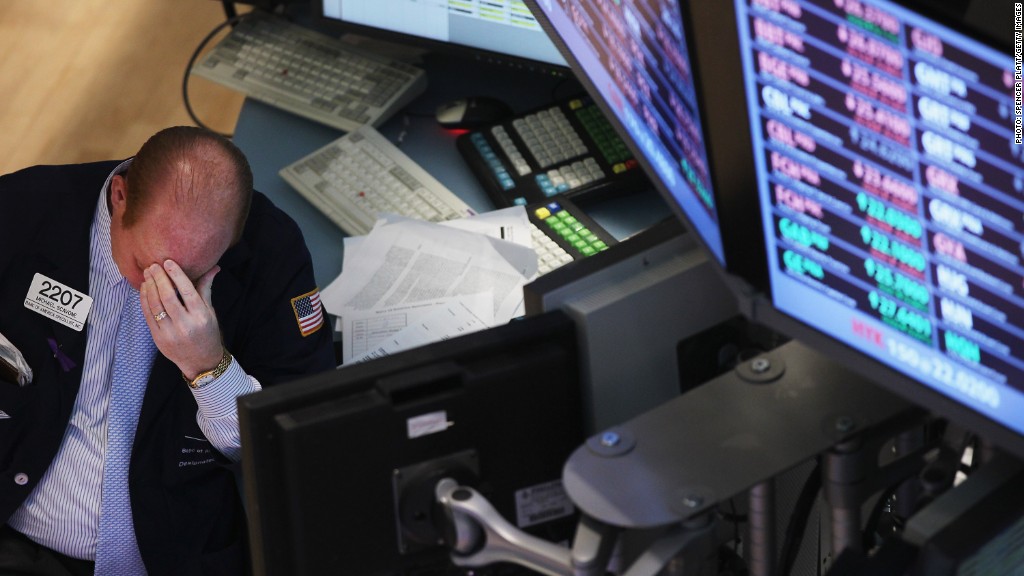
Is political gridlock actually a good thing for Britain?
That's the argument made by some analysts after an election projection showed that Prime Minister Theresa May is in danger of losing her majority in parliament.
The pound -- which is highly sensitive to negative Brexit news -- slumped below $1.28 after the release of the YouGov projection. But the currency quickly rebounded.
Here's one way to explain the reaction: A clear victory for May would preserve the political status quo including the risk of a very messy divorce from the European Union.
But a hung parliament -- where no party has a majority -- could force British politicians to compromise on Brexit and lead to a less painful exit from the EU.
"All hell could break loose metaphorically speaking, at least at first," said Kallum Pickering, an economist at Berenberg Bank. "However, if a hung parliament forced a cross-party compromise it could lead to a softer Brexit strategy, and may turn out to be positive in the long run."
Analysts at JPMorgan agreed. They said that a governing coalition consisting of left-of-center parties could keep the U.K.'s current trade and immigration policies in place.
Related: EU citizens are leaving Brexit Britain
May called the June 8 election in hopes of strengthening the Conservative Party's position in parliament while earning a mandate to pursue a clean break from the EU.
Doing so would take Britain out of Europe's unified trading market, but allow May to deliver on her signature promise to reduce the number of people coming to Britain from the EU.
May, who once enjoyed a massive lead in the polls, has also said that she prefers "no deal" with the EU to a "bad deal."
No deal could cause chaos by introducing barriers to trade and disrupting complex supply chains. Airlines say air traffic could be thrown into confusion because they rely on EU agreements. Automakers may have to move some production elsewhere.
The Centre for European Reform, a think tank, has warned that crashing out of the union would be "massively disruptive."
"The costs to the U.K. economy of failing to strike a deal would dwarf those of signing up to a bad deal," the group said in a research note.
Related: Business is worried about the U.K. election, whoever wins
Labour, the main opposition party, would not try to reverse the decision to leave the EU. But it does want to retain "the benefits of the single market and customs union."
Its potential governing partners have their own ideas: The Liberal Democrats want a referendum on any deal with the EU, and the Scottish National Party is pushing for Scotland to stay in Europe's unified market.
Analysts have also cautioned against reading too much into pre-election polls and projections. Unreliable data and an uncertain political landscape make the election result especially difficult to predict.
"Before getting carried away ... it should be noted that the betting markets still have the Conservatives as overwhelming favorites to secure a majority," said JPMorgan analysts.


